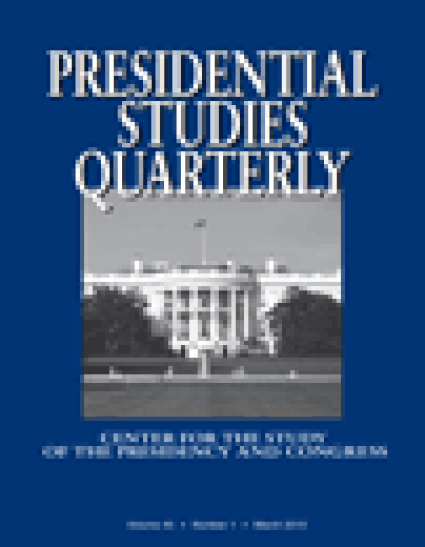
Article
The Illustrated Four Freedoms: FDR, Rockwell, and the Margins of the Rhetorical Presidency
Presidential Studies Quarterly
(2015)
Abstract
This article examines the rhetorical failure and eventual resurrection of Franklin D. Roosevelt's (FDR's) Four Freedoms and the implications of this transformation for conceptualizing the rhetorical presidency. By charting the phrase's initial flop and the related troubles of the administration's official Four Freedoms pamphlet, the essay argues that FDR's ideal was restrained by the government's reliance on a diegetic approach to propaganda. The appearance of Norman Rockwell's Four Freedoms series in 1943, in contrast, embraced a mimetic approach. I conclude that Rockwell's paintings and their attendant publicity blitz dramatized and personalized the president's Four Freedoms, fostering a surge of identification on the home front and ultimately launching the ideal on its ascendant course into rhetorical history.
Keywords
- FDR
Disciplines
Publication Date
March, 2015
DOI
10.1111/psq.12170
Citation Information
James Kimble. "The Illustrated Four Freedoms: FDR, Rockwell, and the Margins of the Rhetorical Presidency" Presidential Studies Quarterly Vol. 45 Iss. 1 (2015) p. 46 - 69 ISSN: 0360-4918 Available at: http://works.bepress.com/james-kimble/6/
